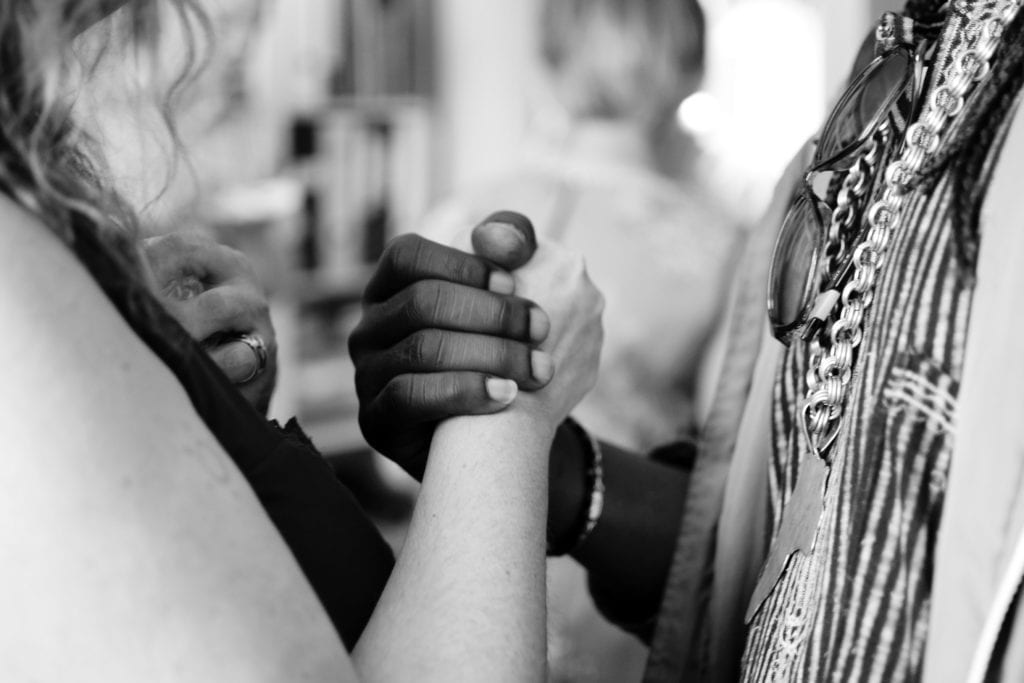How To Talk To Your Child About Race

How to talk to your child about race is an important topic to write about because discussing race is something that’s uncomfortable for most people.
Although it is something that all parents should do in order to teach their children how vital it is to treat everyone based upon the content of the character rather than the color of their skin.
Talking about race is hard to talk about even for the most articulate parents out there.
Before you teach your children to talk appropriately they first must be good listeners. For more information on how to help your child be a good listener check out our article How To Get A Child To Listen In School.
It is hard to talk about because there are so many moving pieces and every family must have a different conversation in order to correctly convey the right message.
These tips and techniques below will not always work for everybody but it is imperative that you have this conversation with your child because you don’t want somebody else talking to your child about something so important without you.
Use these tips and talking points as a means to get the conversation started and adjust or modify them to best serve your family
1. Empathy, Compassion and Love

You must have empathy, compassion and love as a part of your family language.
If this great world we live in is going to get any better we need to ensure that these words are at the forefront of our thinking regardless of the topic we are discussing.
When we begin conversations with these words in mind the conversation will start in the right direction and is a testament to listening to someone’s beliefs.
Trying to understand where another person is coming from rather than trying to change their thinking is not an easy task but is something all parents and their children should try to strive for.
When you are talking to your child about race or any other topic it is important to instill in your child how to listen to how the other person is feeling and try to see things from their perspective.
Many times changing someone’s ideas about something is not accomplished through argument but through understanding the path another has traveled so you can help led them in a different one.
It is also important to teach your child how crucial it is to be able to compassionately walk away from a conversation being able to “agree to disagree.”
So many times as adults we feel that it is our responsibility to change the way others think but if we can teach our children to be empathic to the opinions other others while still holding strong to their own is a strength, not a weakness.
It is also paramount when talking to your child that while it is not our responsibility to change someones thinking it is our responsibility to speak up or get help when we see or hear hate or racism because the feelings of the person affected by it are also important.
Love is the only emotion that can conquer hate and when teaching your child how to have conversations about difficult topics it is necessary to hold the principles of empathy, compassion and love in high regard.
2. Don’t Talk…Model

Don’t talk about race, don’t talk about important subjects to your child, model it for them.
The best teacher a young child can have is for the adults in their lives to model positive and loving lessons for them.
Just like the baby tiger or bear, human beings learn best through modeling as well.
If you want your child to be a successful adult and want them to see the importance of empathy, love and compassion you have to model that to your child.
If you want them to react in a positive way, you have to act in that positive way first.
It is difficult for a child to learn if you tell them something or you talk to them about something and then show them differently.
Your actions cannot show them differently than what you are trying to teach them.
It is crucial that you practice what you preach.
Your child will see the conflict in what you are saying and in what you’re doing and the lesson will not be learned
Actions speak louder than words!
It is essential for parents to understand that regardless of the conversation if they are already modeling the lessons they are trying to teach in their everyday lives their children will understand the lesson much faster when it comes time for parents to try to teach the lesson verbally.
I have had many conversations with parents, teachers and students that have said my father or mother didn’t teach me this directly I saw them do that and that is why I do it today.
You will also find people that will tell you over and over again that it was not what a person said it was what they did that made the difference.
It is extremely important when we are talking about race and how to handle race equality that parents are modeling to their children in their own daily lives what it means to treat all people with respect and kindness.
It is also true that if you want your child to be successful you must show them the traits to be successful.
If you want them to be a good reader you must model for them good reading skills and be a reader yourself.
It’s amazing how easy this can be in theory but this is one of the most difficult things for a parent to put into practice.
When you model for your child what it looks like to love and respect all people the conversation you have with your child about it will most likely be a short one because the lesson was shown to them and learned a long time ago.
3. Talk About Race

This is extremely important as you do not want your child to hear something as important as this from somebody else.
You don’t want to start the conversation about race by them hearing it from somebody else.
Don’t get me wrong they’re going to see and hear it from other places but your job is to make sure that they hear it from you first.
The best way to start off the conversation is by encouraging your child to ask questions and to also ask questions of them.
Examples of questions could be:
Do you know what race is?
What do you know about race?
What have your heard other people say about race?
Asking questions is going to be the intrinsic link that will connect them to the conversation so that they really take it to heart,
Another important aspect is to make the conversation age-appropriate.
You want to talk to them as early as you can but we all know the children are different.
We have to differentiate based upon their maturity.
If your child is more mature than have this conversion early with more detail and if not then still have the conversion but make it simple and to the point.
This conversation will not be a sprint but will be more like a marathon and you’re going to want to break it up into small chunks.
You don’t want to give them a dissertation so try to make the conversation engaging, simple and to the point.
By talking to our child early they will have the ability to create a foundation for themselves rather than somebody building it for them.
For more information on how to talk to your children about race please check out this article from the National Museum Of African American History And Culture
4. Teach About Other Cultures

Teach them about other cultures will help them understand that it is the differences make this world a great place.
When children have been given the opportunity to see other cultures and the ways other people talk, eat, work and play it expands their view of the world and of themselves.
Helping your child by exposing them to many multicultural backgrounds, whether that be through multicultural literature, going to museums, finding opportunities in your community or encouraging the company that they keep be diverse can make growing up and living in the real world much easier.
Regardless of how you go about it, exposing your child to things that they are not familiar with yet is the key to understanding the many different but beautiful parts of the world they live in.
When discussing other cultures start by asking them what they are interested in and what they have picked up on their own.
Let them lead you in the direction so that their education is natural and holds their interest.
Educating children starts with the parent’s openness to learning as well.
Before talking to your child do a little research yourself so you have the confidence in the information you are giving your child.
This will help them use the great lessons you are teaching them to help themselves and others.
5. Talk About Racism and Bigotry

Talking about racism, bigotry and prejudice is important because it is an uncomfortable subject and you want your child to have the tools to handle it early in their life.
Unfortunately, it is possible that someone will say something to your child or do something to someone else that is not appropriate when it comes to race.
Many children’s response is to also react negatively toward the person being inappropriate.
This many times is not the answer and is a symptom of a child whose parents have not discussed the topic with them ahead of time.
Talking to them ahead of time on how to handle this type of situation makes a huge difference.
By talking to your child about race and racism early in their life they will know what to look for and that it is wrong.
Another big advantage of talking to your child ahead of time is the ability to talk to them about how to handle a situation when someone is talking about race inappropriately.
You can give them a preset response that both you and your child have come up with during your conversation that shows empathy and love but also lets them know that what they are saying is inappropriate.
If you prefer that your child not respond to the person that is being inappropriate then you could talk about who your child could approach such as a teacher or another adult that can handle the situation correctly.
When parents discuss how to handle uncomfortable situations ahead of time it gives the child a sense of confidence and keeps them from having to think or do something on the spot.
There is an old saying “ hindsight is 20/20”
When you talk with your child ahead of time about how to handle uncomfortable situations they hopefully will never be disappointed with their decisions when it comes to race because you have already come up with a plan and how to positively execute it.
Please Comment Below!
Please let us know of any tips or techniques that have worked for you when talking about race with your children.





It is such a great blog. The essentials to make a child to learn good values. Great information.
Thank You!